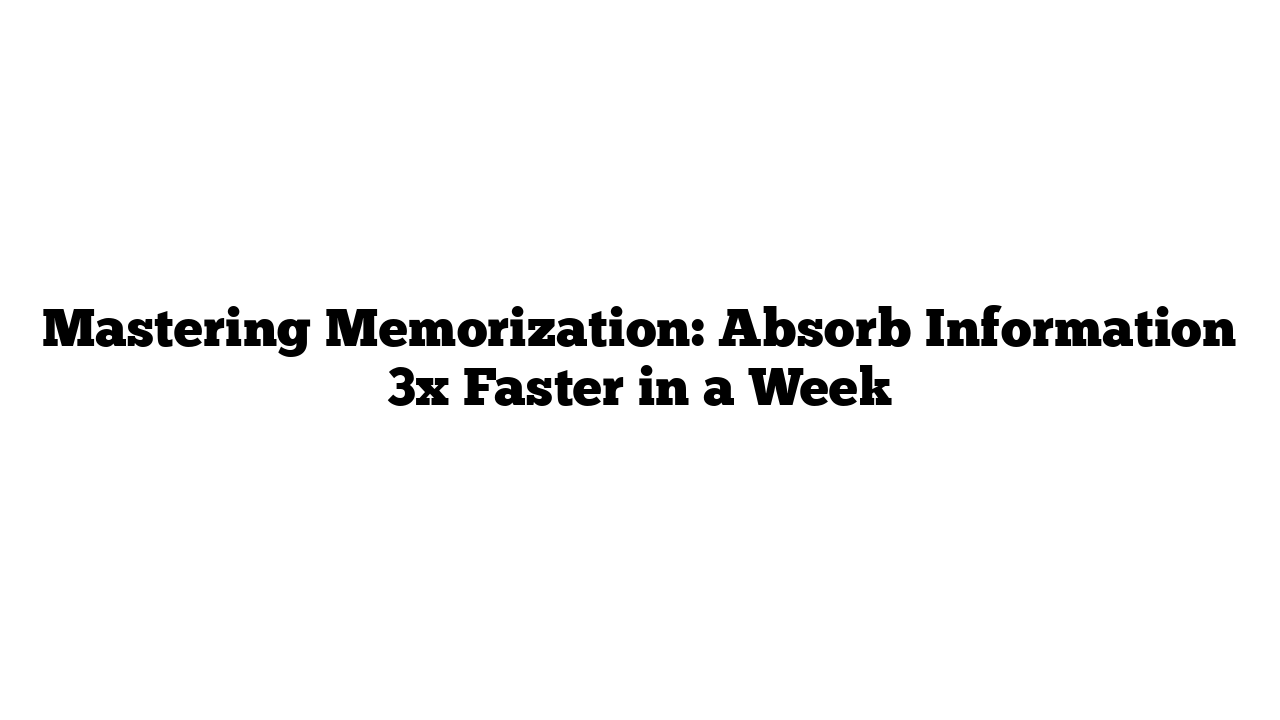Studying isn’t just about understanding; it’s also about memorizing. If you clicked on this article, you likely know that effective study techniques can significantly enhance your learning efficiency. Throughout my journey in undergraduate and postgraduate studies, as well as medical school, I’ve mastered a method called the Atomic Method. This approach helped me memorize tens of thousands of facts and become a top 2% medical student. Here’s how you can apply it to absorb facts three times faster in just seven days.
Understanding Active Recall and Spaced Repetition
Before diving into the Atomic Method, let’s cover the core concepts: active recall and spaced repetition. Many people think they know how to use these techniques, but they often misunderstand their application.
- Active Recall: This technique involves actively retrieving information from your memory, rather than passively reading or highlighting. For example, instead of re-reading notes on heart attack treatments, transform this information into questions that you can answer. This process strengthens the connections in your brain, making it easier to remember.
- Spaced Repetition: This method leverages the concept of the forgetting curve, which shows that we forget information over time if we don’t review it. By revisiting information at increasing intervals, you reinforce your memory, allowing you to retain it for longer.
To practice spaced repetition, you can use apps like Anki that automate the process. This avoids the common mistake of setting review dates that are either too frequent or too sparse.
The Atomic Method
Now, let’s explore the Atomic Method in detail. This method incorporates visual elements and simplified language to enhance memorization.
1. Use Visual Aids
When forming questions, use images to represent concepts. For instance, instead of just writing “causes of heart attack,” include a relevant image. Visuals are easier for your brain to interpret and remember than words alone.
2. Simplify Your Language
When writing answers, use simple and relatable language. Instead of saying, “myocardial infarctions are precipitated by hypercholesterolemia and hypertension,” say, “high cholesterol and blood pressure can increase the risk of heart attacks.” This simplification makes it easier to remember the information.
3. Utilize AI Tools
To save time, employ AI tools like ChatGPT to help you organize and generate questions based on your notes. After creating some initial questions, input them into the AI and request it to generate new questions that follow your template. This can save hours of time and ensure you don’t overlook important concepts.
Efficient Study Strategies
As you progress through your studies, prioritize the most important topics first. Focus on broader concepts before delving into niche details. This follows the 80/20 principle, where 80% of the critical information is often found within 20% of the material. For instance, when studying heart problems, cover conditions like heart failure immediately after heart attacks to reinforce connections.
To maintain your mental energy, start your study sessions by reviewing previously covered material. This approach warms up your brain and makes it easier to tackle new information.
Keeping Engagement High
Finally, it’s important to keep your study sessions engaging. Boredom can hinder your ability to concentrate. Incorporate breaks, vary your study techniques, and explore different formats (like videos or quizzes) to maintain interest.
For more tips on maintaining focus and enhancing your study sessions, be sure to check out my related articles.
Summary
By implementing the Atomic Method along with active recall and spaced repetition, you can significantly enhance your memorization capabilities in just a week. Embrace visual learning, simplify your language, utilize AI tools, and structure your study sessions for maximum effectiveness. Happy studying!
